Do you enjoy this newsletter? Only you know unless you tell us!
One of the interesting things about writing a newsletter that goes to tens of thousands of people, is that it becomes hard to tell if what you're writing resonates; yes, I have opens and click rates, survey responses, and people who have been customers over the years for Lighthouse software and Lighthouse Lessons, but they're only a partial picture.
My favorite is definitely when you reply, or post things like this, because it helps us really understand your perspective.
It also motivates us to keep writing and sharing knowing that you took a moment to tell us or other people about it.
So if something we write really resonates with you, please let us know by replying, or tagging us when you share it.
---
In today’s edition, we cover some great lessons in culture building, some data on how we all learn, and we've just updated one of our biggest posts we ever made that is one you're going to want to bookmark.
Let’s dive in…
Table of contents:
- 🥘 Food for Thought on Bringing Fun to Your Team / Culture
- 📰 News & Reports for Managers on a Survey on Learning new Skills
- 🗣️ Ask Lighthouse on Changing a Dog-eat-Dog Culture
➡️ Did a friend forward this to you? Get every issue straight to your inbox by signing up here.
Note: This is a preview of our weekly leadership newsletter, Lighthouse Leadership Weekly (LLW).
To get this sent to your inbox every week, along with our latest long form essays on this blog, you can sign up here.
🥘 Food for Thought on Building Fun Cultures
Tara Viswanathan, Founder & CEO of Rupa Health had an awesome Tweetstorm about building fun cultures, so sharing here: (you can read and RT it here)
[Ed Note: The bold and yellow highlighting are mine for emphasis of the best points.]
Yesterday a founder asked me how to bring “fun” back into their company. They scaled very quickly & suddenly the magic and fun dried up. (“Ew, process.” So common!) My rules for "fun" at a startup:
(1/8) If I am not having fun, no one is having fun. If I (the CEO) am not waking up excited to build - through the good and the bad - the team absolutely is not.
First priority: Create an environment where you, the leader, show up engaged & excited every day.(2/8) Fun (and culture) cannot be outsourced. You cannot delegate “culture carriers”. You (the CEO) are the ultimate culture carrier. It has to come from you. ppl do not take “culture events” seriously if the CEO does not run it (or worse, doesn’t show up). You set the tone.
(3/8) Fun cannot be systematized. One quarter I surprised the team by launching a “quarterly theme” of Pirates of the CarRUPAbbean. It was one of the top 10 funniest moments at Rupa.
The next quarter we did another theme. And then another one the following. Then we had to stop. What had been a fun surprise suddenly became an expectation. As soon as something becomes an expectation, the magic disappears. This is why “weekly happy hours” don’t work. You have to constantly nurture “fun”. Keep it fresh. Surprise the team.
It will not be efficient, but it will be effective.(4/8) You can’t throw money at the problem. You don’t need more tools. You don’t need to send swag.
You cannot buy your way out of this.
Surprise your team with a AI written rap of company goals. Start a slack channel for #LOLS for ppl to post the absurd random funny things that inevitably happen in startup life.
Call your teammate and sing them happy birthday.(5/8) Fun happens in the tiny moments.
It doesn’t work if you carve out “times for fun”. “5PM happy hour” implies every other time is not happy.
Fun is not a “scheduled event” but woven through every interaction.
It’s sharing a meme. Laughing at a joke together. Bonding around a competitor and making a poster about defeating them and shipping the posters to your team to put on their wall next to their desk.(6/8) You can’t go from fear —> fun. When people are worried, fearful, or anxious — fun is not the goal. The goal is safety.
People need to feel safe before they can go above the line and enjoy work. Talk to them about the elephant in the room (often: job security or company health) before bringing in fun. i.e. please don’t crack a joke or send out memes after a RIF [Layoffs].(7/8) For the love of startup gods, do not rely on culture surveys!!
“How much do you enjoy your Acme co job on a scale of 1-10?”
ZERO. If you have to ask in a weird, impersonal survey, it’s ZERO!!!
Your role as a leader is to always have a pulse on how your team is feeling. You should be able to sense it & then just go talk to people to learn more. Our team's NPS is…..I don’t care.
What our team is organically posting on linkedin, twitter, telling their friends & potential candidates is what I care about. Measure what matters. (Hill I’m willing to die on, clearly)(8/8) The point of a startup is not fun. It’s winning. This should have been point #1. But having fun helps with winning, especially when thing get hard (which they inevitably will). 🙂
I loved these, so wanted to share it with you here, and then add a few thoughts on it.
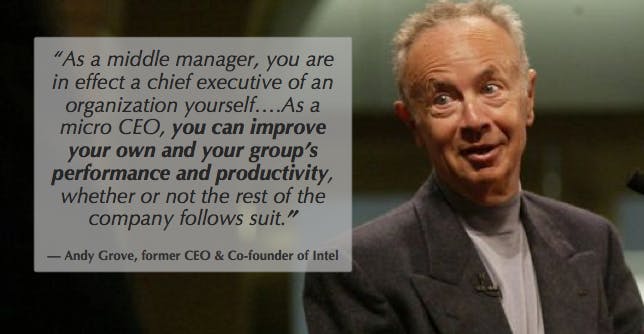
1) These apply to every leader, even at big companies.
As Andy Grove wisely reminds us, every leader has agency over their own teams. You can improve your team regardless of what's happening in the rest of your company, and that includes your culture.
Now, there are some limitations. Whether you're thinking about your larger company norms, or budget constraints when you're not CEO, I want you to use common sense. Don't be a bank manager and tell your customer-facing team to dress as pirates on a Tuesday,
But a lot of what Tara talks about you can do for any team like:
- Start a private chat channel for you and your team to talk about a topic you choose.
- Create safety by relieving concerns about layoffs, company struggles, etc. (Often, all you need to do is bravely talk about it with them and listen!)
- Weave some fun into small interactions, "It’s sharing a meme. Laughing at a joke together. Bonding around a competitor and making a poster about defeating them and shipping the posters to your team."
And equally important, as Tara points out, if you're not having fun, your team isn't. And we know this is real, because Gallup literally studied this and identified the "Cascade Effect":
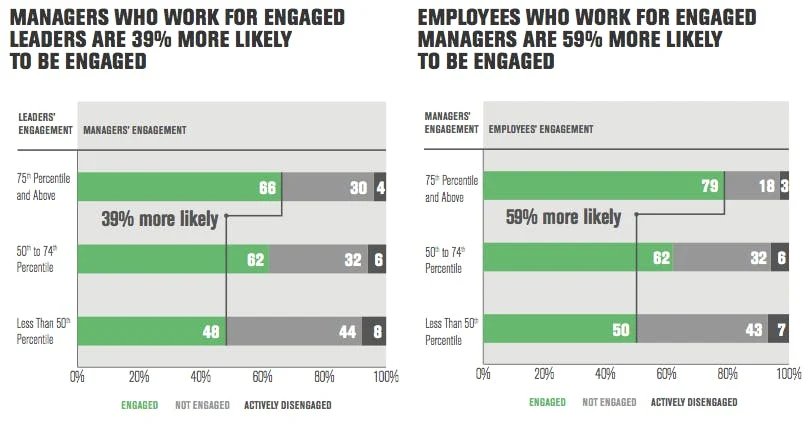
So remember to start with your attitude, and then experiment from there.

2) Don't copy these exactly.
You are not Tara Viswanathan, and you shouldn't try to be.
You can only be the best version of YOU.
So don't read that Tweetstorm and start planning to buy T-Shirts making fun of your competitor, nor start planning your pirate-themed day (unless that really feels like you!).
You have to look at yourself and your team and ask: What fits us?!?
As a completely different perspective, here's things my father did, running an accounting firm that did taxes and financial planning for farmers in Pennsylvania that really defined their culture:
- Sent out thoughtful messages of gratitude to his staff around holidays with some Christian themes
- Gave everyone different branded swag every year, making sure they were really nice. (Jackets, bags, notebooks, etc)
- Wore goofy ties on casual days at the office (he wore a suit every day)
Now, some of you are probably gasping or laughing at some of those. Many of us can't recall the last time we wore a tie outside of weddings and funerals. And some of you probably would find mentioning religion at work a big no-no.
But his staff loved these things.
The average tenure on his staff was 17 years. The leading cause of turnover was retirement.
And remember: they did taxes for farmers. Guess what? They're often very religious people, so the kinds of accountants that both wanted to do this work, and that got along best with the farmers tended to be religious, too.
So don't copy any of the things my father did if they don't resonate. The point is to show the contrast.
Be unapologetically YOU. Because when you're having fun, there's a good chance your team will have fun, too.

3) Remember to keep a pulse on things and iterate.
This one is harder and takes time. As a leader, you need to develop your spidey sense. And that's tuned by raising your self awareness, paying attention, and leveraging your 1 on 1s.
Ask your team. Get ideas. Get feedback on stuff you tried, and learn to pay attention.
It's why this months' Book of the Month is about body language.
If you learn body language you will see without your team saying a word whether your "great culture idea" is a huge hit, or a dreaded flop.
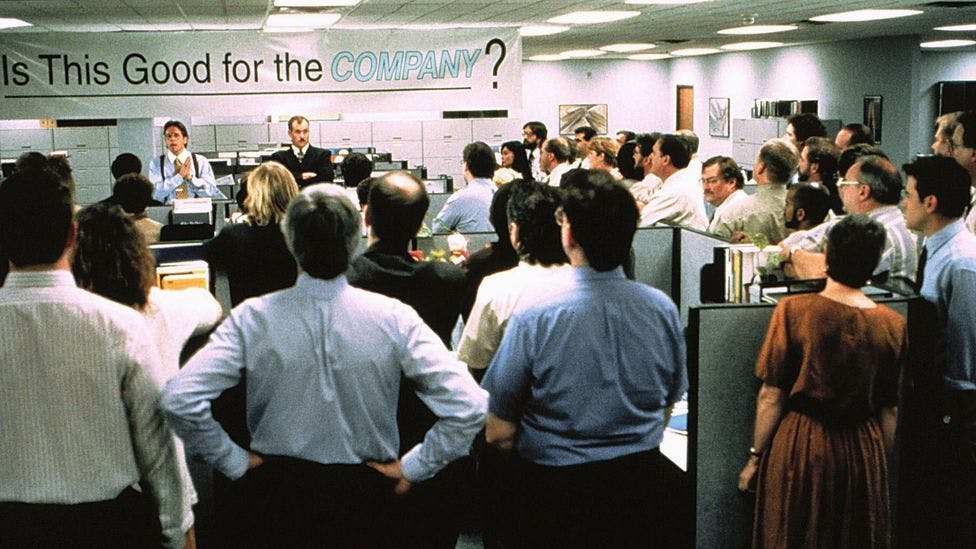
I can't guarantee that everything you love will also be loved and considered fun by your team, but I can tell you that if you try a few things, and listen to your team, you'll find some things that will work.
Not sure where to start? Try this:
- In your 1 on 1s this week, ask your team what they consider the most fun things at work
- Then ask them things that they did at past jobs or previously here that they liked culturally.
Think about a few small things you'd like to do to make work more fun
- Take what you think are the 2-3 best and suggest them to your team and see what they gravitate to
Culture doesn't have to feel like a big, heavy project. Start small, listen, and try a few things.
You may be surprised how much fun you can actually have at work.
📰 News & Reports for Managers
📌 A leadership Development Benchmark report shows the skills leaders are lacking
I stumbled on an interesting report, and wanted to share some of the most interesting takeaways from their survey of over 140 companies:
1) Coaching is a common weakness:
Over half of all respondents felt their managers aren't particularly great coaches, and even worse, only 10% agreed with the statement.
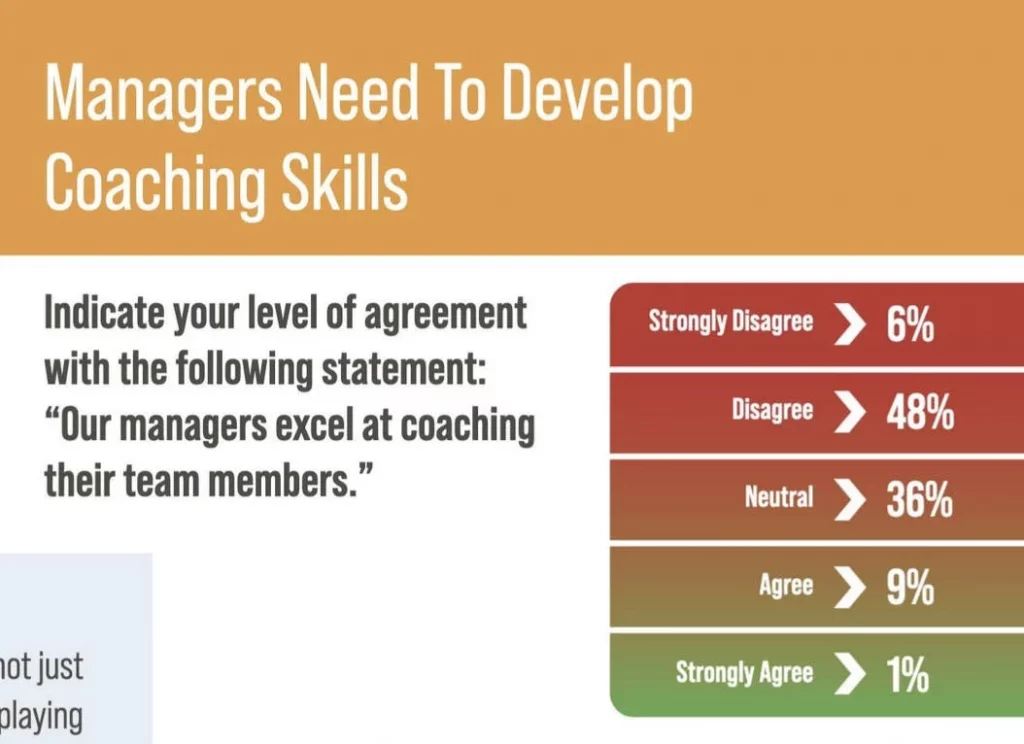
This isn't surprising to me. Think about the difference between being a leader and an individual contributor (IC). The amount of coaching you do as an IC is typically almost none. That means it's unlikely you have a lot of coaching skills naturally when you move into the role as leader.
Want to improve your coaching? You can start with these posts, and then when you want to get serious, train you and your managers with our Coach's Clinic program.
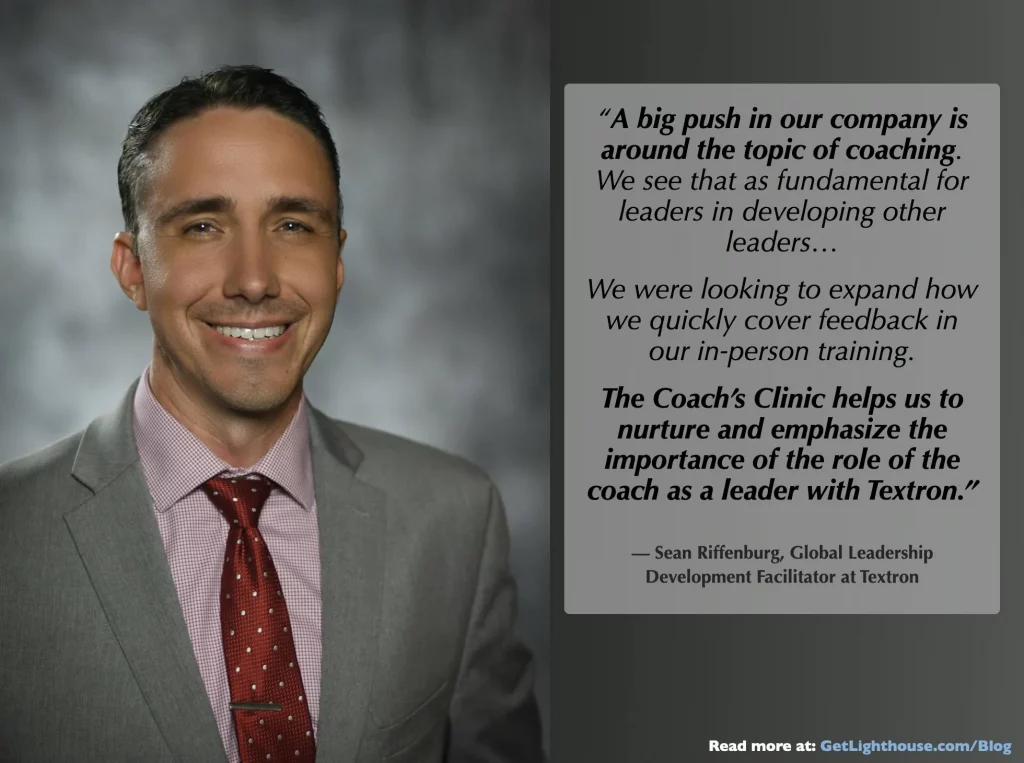
2) The biggest problem with training is people don't want to do it!
This one was a real shocker to me. The state of training is pretty rough when people just don't even want to do it:
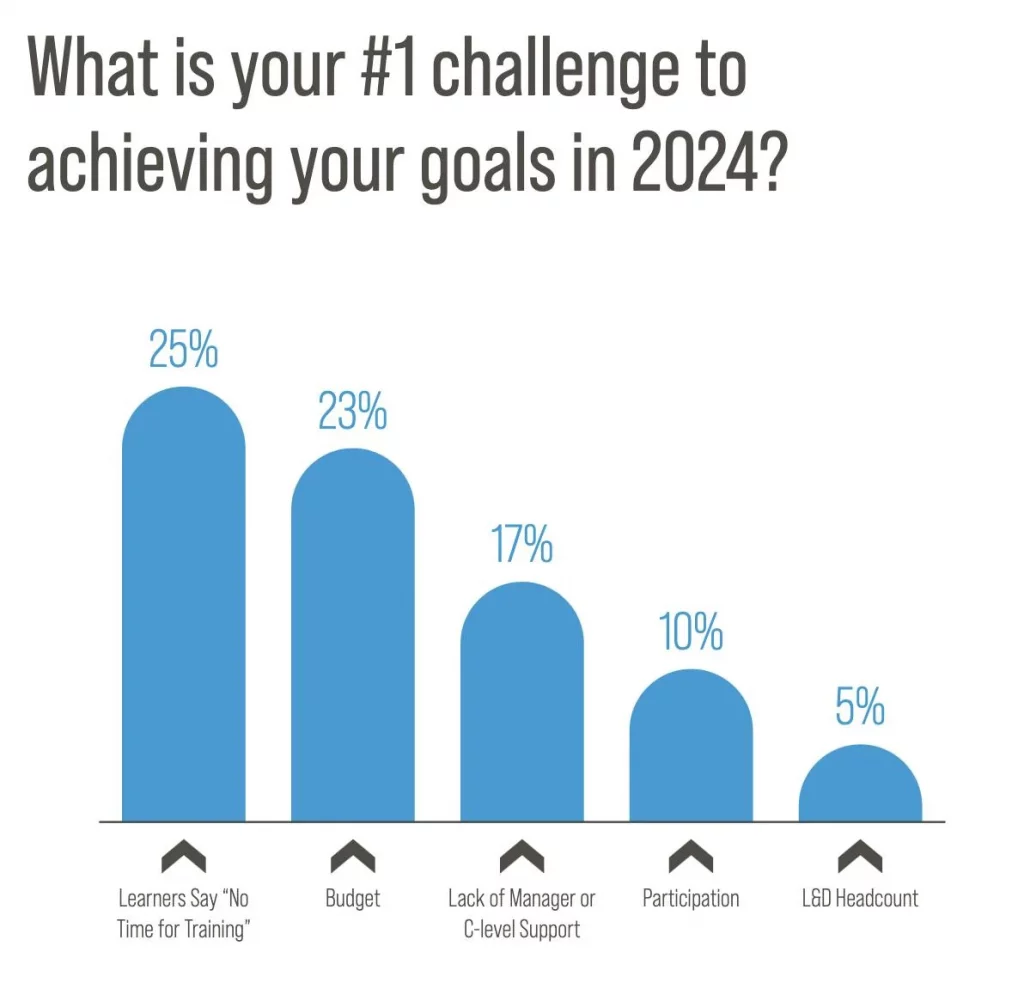
So what can you do about it? You have to try something different.
And this is literally what inspired us to create Lighthouse Lessons. I saw how most training was boring Zooms, or cringe-filled, day (or week)-long classroom trainings that left managers with overloaded notifications for their typical work and not enough learned in those sessions.
That's why we focus on being:
- Bite-sized: It only takes 20 minutes a week to review the lesson, and it teaches one concept you can focus on that week.
- Action-oriented: What good is a concept if you don't see how it applies to your work? Every lesson shows leaders how to apply it to their team right away, so they see how it works and learn by doing.
- Talking instead of being talked at: A lot of training ends up being the speaker talking to an audience. Instead, we have managers meet for group discussions so they can talk about the real challenges they face at work and can support each other.
If you're ready to try something different, or want someone to walk you through your biggest questions about trying Lighthouse Lessons at your company, sign up here.
3) People aren't applying what they learn in most training
Given what we just looked at and how we designed Lighthouse Lessons to be different, is it any surprise the people don't think their training is sticking?
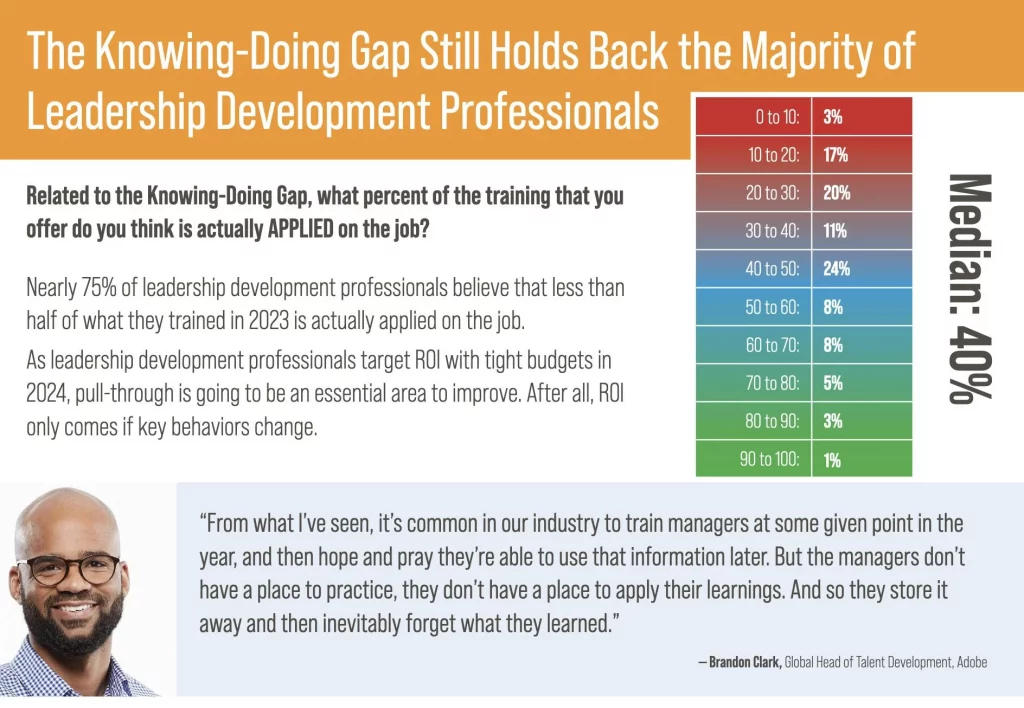
And this makes sense, because when you cram all the training into a single day, you end up staring down the Ebbinghaus Forgetting Curve:
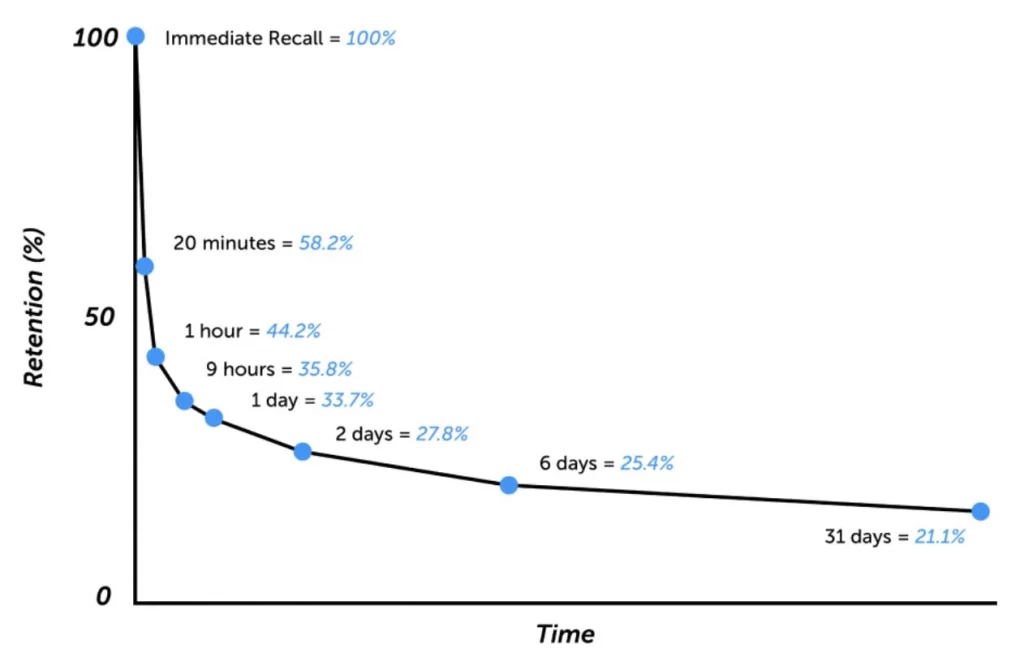
Want to combat people forgetting your training? Learn more about the benefits of micro-learning and spaced learning here.
4) Shorter training is better!
It's always nice to see the industry recognize a fundamental truth we have learned as well:
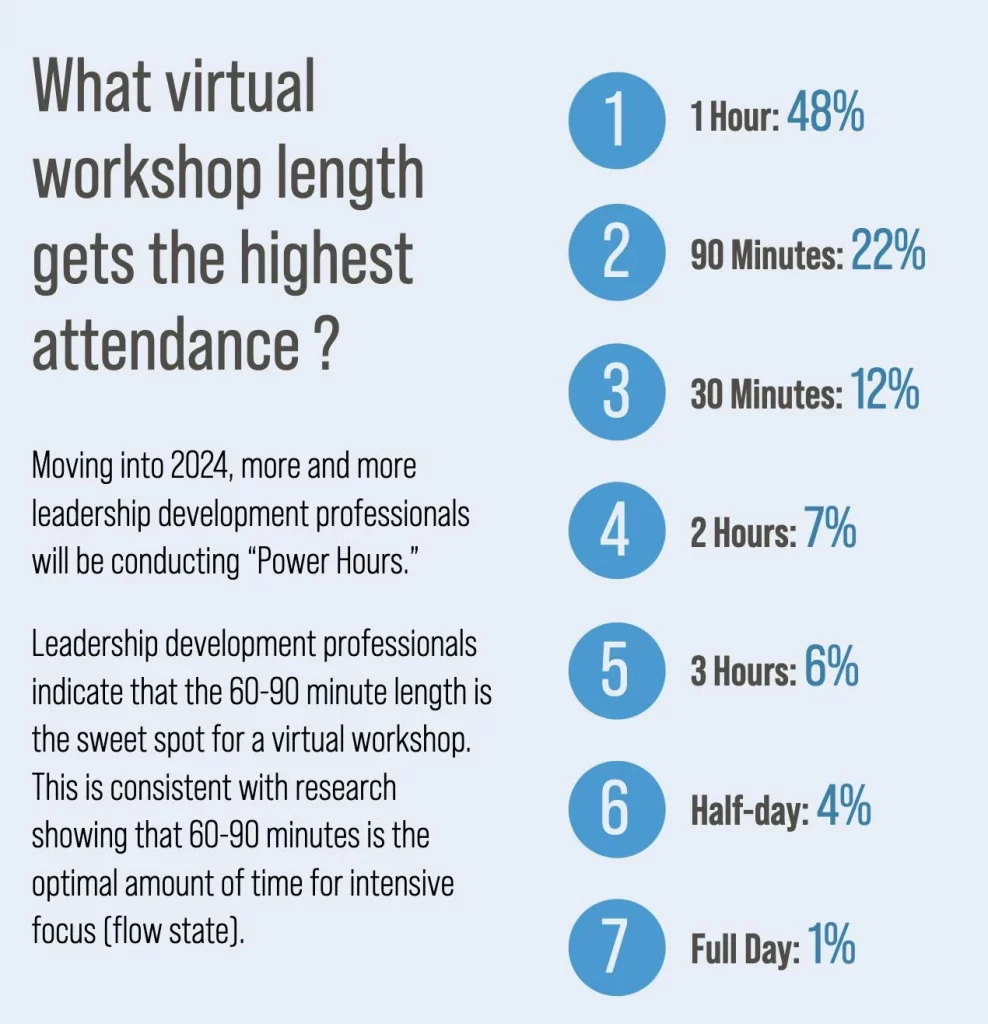
As you can see, longer doesn't tend to work as well. People get overwhelmed. They max out what they can remember. They get overwhelmed by notifications from their job and lose focus on what you're teaching.
That means you need to adapt how you train your leaders to meet this demand.
If you want help doing so, or want to try a different way that has leaders and trainers raving, then sign up to talk more about how Lighthouse Lessons can help you here.
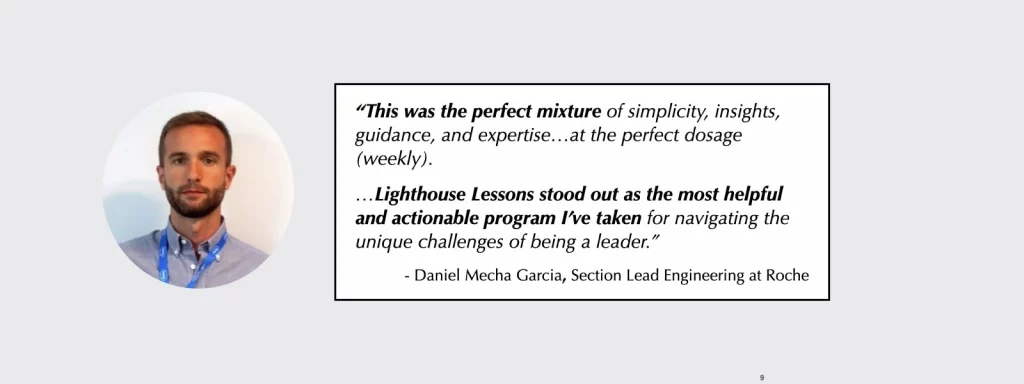
🗣️ Ask Lighthouse on a Reducing a Dog-eat-Dog Culture
A reader wrote in with a good question about changing cultures and managing incentives:
"We recently went through a org restructure and my department now has twice as many managers.
How do I get the team to form trusting relationships and gel, while avoiding creating a dog-eat-dog mentality for progression?"
This is a tough one. As Steelers head coach Mike Tomlin likes to say some battles are, "Two dogs, one bone."
Yet, if you make your incentives too heavy in favor of that behavior, you'll get competitiveness to the degree that people may sabotage, undermine, or refuse to cooperate with each other.
You're not building an NFL team with a depth chart, so you need to avoid that dog-eat-dog culture.
Here's a few tactics that can help:
1) Look at how you and your fellow execs have been reinforcing and rewarding that kind of culture
It starts with you. Your example, and what you recognize and reward makes all the difference. So take a hard look in the mirror to see how you may be helping feed that mindset.
Are you doing a leader board? Are you rewarding only the top 3 and the rest, even if hitting the target aren't recognized?
This is common especially in sales, and sometimes in marketing. Do this and you'll get very sharp elbows between teams really fast.
That's why Mark C Crowley, who was a leading executive in the financial industry, always rewarded *everyone* who hit a goal or milestone, not just the top 3. As he told us in our interview on the Lighthouse blog:
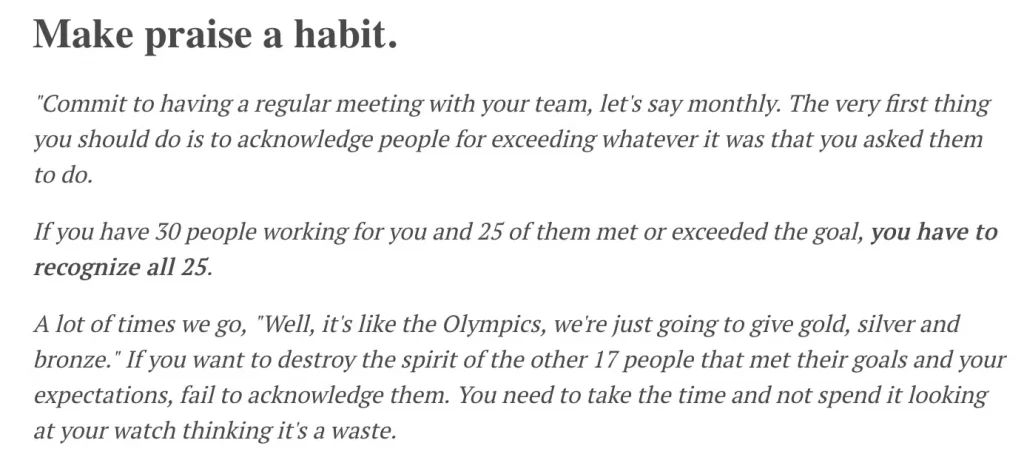
2) Explicitly look for ways to support and reward collaboration
Once you've cut back on how cutthroat you're making your team, you need to replace those incentives with ones that reward collaboration.
Ask yourself: How can your teams win together?
- Can you make part of people's bonuses tied to the whole company winning, not just their team?
- Can you offer career paths other than a limited number of senior leadership spots for people to advance into?
- How can you praise and recognize collaboration in group meetings and when meeting with individuals?
Remember: you get more of what you reward, so it's worth thinking about various tactics you can try.
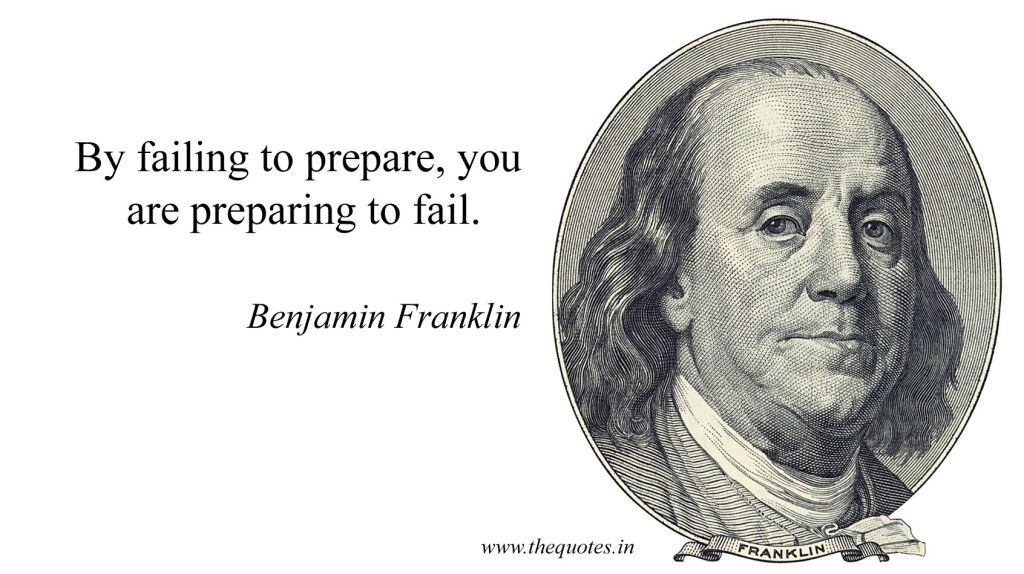
3) Consider how your managers will work together not just now but 1-2 years from now. How do you see the org evolving?
If you don't have answers, your team will unfortunately often make up their own. That's why it's important to map out some of the possibilities.
That way, when they ask you have a good answer, or even better, if you have buy in from any leaders above you, you can explain the different paths that could open up depending on how the company does.
Think about what raises, promotions, milestones, and accolades will be available depending on:
- What if things go well the next two years?
- What if things stay roughly the same?
- What if things go poorly?
If you know roughly what things may look like for any of those 3 paths, you'll have answers to the toughest questions your dog-eat-dog mentality team members want to know most.
Then, you can not only communicate those things, but consider how you can intentionally design incentives to keep those worst dog-eat-dog behaviors at bay.
---
None of the above is easy, but with a little planning, you can make a big difference and reduce the amount of cutthroat and dog-eat-dog behaviors.
How have you helped build a more collaborative culture?
Sign up to get this newsletter & our latest blog posts straight to your inbox:




